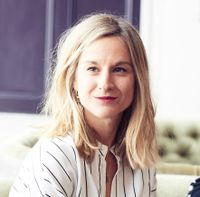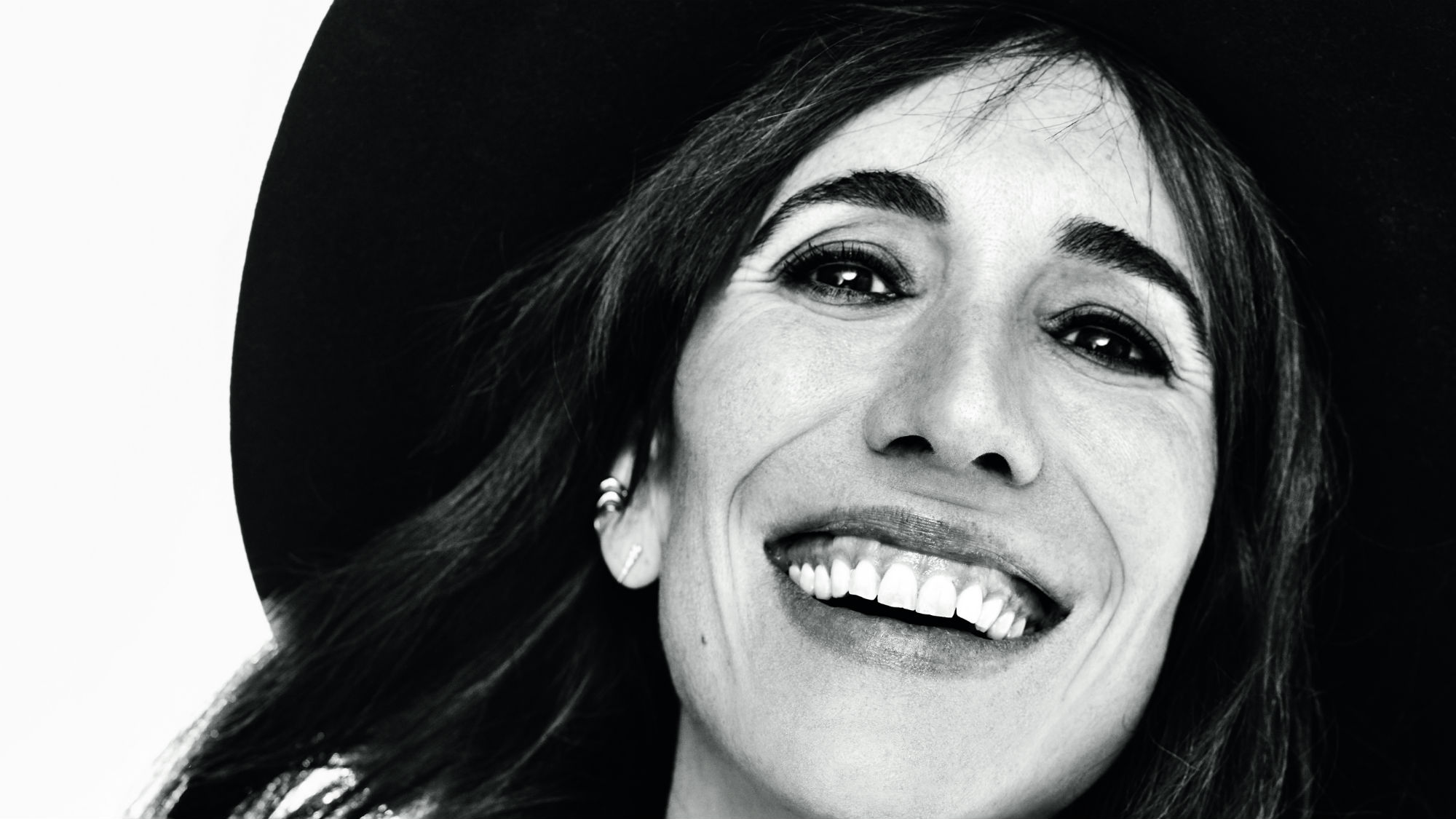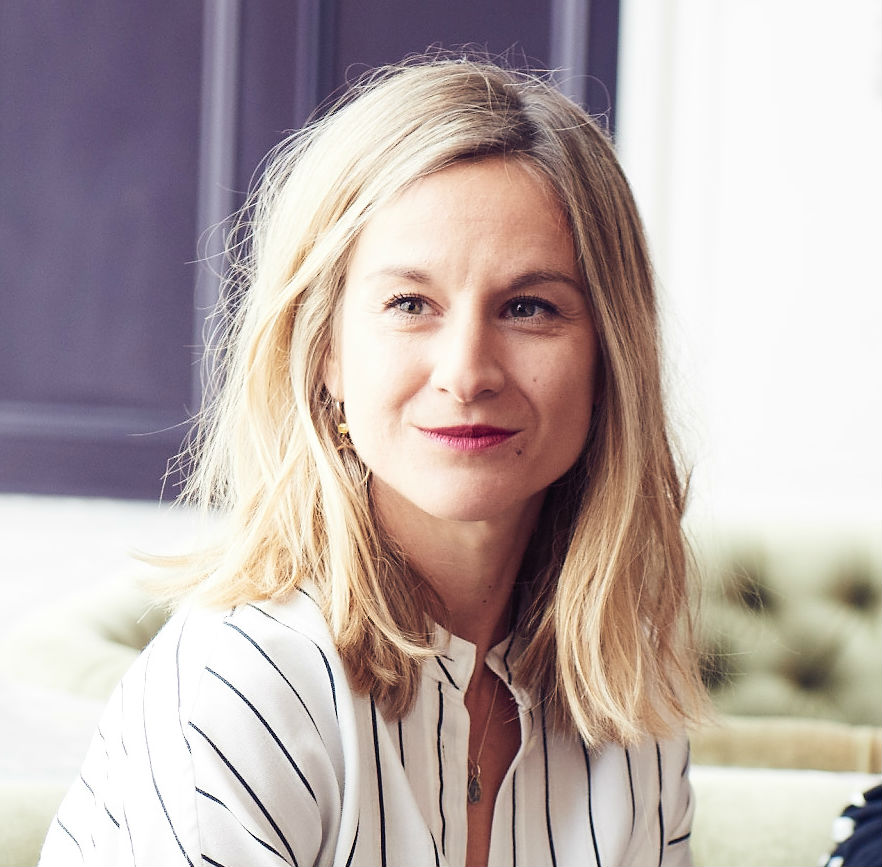This woman knows the secret to the way we will work in the future
Collaboration, skill-sharing and a career that's good for your wellbeing. Entrepreneur Rebekah Paltrow Neumann shares her thoughts on what work in the future will look like


Celebrity news, beauty, fashion advice, and fascinating features, delivered straight to your inbox!
You are now subscribed
Your newsletter sign-up was successful
Collaboration, skill-sharing and a career that's good for your wellbeing. Entrepreneur Rebekah Paltrow Neumann shares her thoughts on what work in the future will look like
What will it feel like to go to work in the future? Collaboration, shared spaces and skill swapping – we are undergoing a workplace revolution and one of the frontrunners is Rebekah Paltrow Neumann, chief brand officer and founding partner of WeWork shared offices spaces.
With 11 locations across London already and 10,000 members, WeWork is transforming office life for creatives, entrepreneurs and freelancers from finance to fashion, recruitment to tech, and advertising to accountancy. The emphasis is on the career blend – a stepping back from the treadmill of the nine to five and offering everyone the chance to reclaim the way they work, the hours they work and the environment they work in. For women especially it offers the flexibility we crave and here Rebekah speaks to Marie Claire about how it all began for her.
How did the idea for WeWork come about?
'We launched WeWork in the Spring of 2010. Both my husband, Adam [Neumann, CEO and Co-Founder of WeWork], and our co-founder, Miguel [McKelvey, WeWork's Chief Creative Officer] grew up in communal living environments: Adam on a kibbutz and Miguel on a commune in Oregon, so community was in our bones. In addition to that, Adam has always had a profound love for real estate. He looks at buildings, even in their rawest forms, as art. It was the combination of these passions and backgrounds that gave rise to WeWork.'
What was the appeal for you?
'I have been studying spirituality my whole life and was, and still am, very excited about the potential of infusing a business and a community with intention and higher meaning. I believe, in doing so, we're helping our members live more meaningful lives. We really believe that success has much less to do with status or financial standing and more to do with happiness, fulfilment, and contribution to the greater good.'
You quit a nine-to-five to become an entrepreneur - was that a scary move?
'I consider everyone to be artists in business and prefer the creativity, challenges and growth that come with starting something from the ground up: struggling, breaking through, and creating new paradigms. So no, it wasn't a scary move. Scary to me is not living a life of meaning and purpose, getting stuck in the mundane and not growing. Life is such a miracle that none of us can completely understand. It needs to be treasured and experienced in all of its richness.'
Is it about blending work with your life?
'I often say that there really is no separation between work and life any more, especially when you're doing something you're passionate about. For us, it's more of a 24-6 commitment (we observe Shabbat one day a week) but, at the same time, it never really feels like work.
Celebrity news, beauty, fashion advice, and fascinating features, delivered straight to your inbox!
That said, it took me a while to find my way. I had many stops along the way from a job in banking to WeWork. I travelled to Tibet to study meditation and yoga, worked with a band in California for a time, and pursued a career in acting. So there was definitely some searching for me, but all along my commitment was to finding my passion and that journey still exists and continues to evolve today.'
Why do you think collaborative working appeals to women especially?
'I think women are innately creative beings who want to give back and add value to society. WeWork is a platform for people manifesting creative pursuits and doing so with human dignity and a love and passion for contributing to society.
We have really cool programming and events geared specifically to women such as our annual month-long global event series called Founded by Women, which brings our female founders together to share their stories with our members. I think the social layer of being surrounded by like-minded individuals enhances the whole experience. It's similar for me to the experience I had attending Cornell University. There, the power of the community was so strongly felt and everyone was passionate about learning and expanding.'
How have 'the rules' of work changed?
'The rules of work have changed because the very definition of work itself has changed. People no longer want to work in order to live, they actually want to create their life's work: work in the future will be about people building something beautiful and meaningful to them, as well as to the people who come in contact with their product or service.
The physical space is really important and Miguel has done an incredible job curating a physical community that is dynamic and enriching. Equally important is the culture and the values that permeate WeWork. We are all really committed to certain values and ideals that frame much of what we do. Being grateful, for example.
What are your hopes for work in the future?
'I think work as we know it is on its way out and what we will continue to see is more passion-filled humans committed to doing what they love and making a difference. WeWork is a platform for this new way of life. My hope would be that everyone in the world can get to a place where they are creating out of love and passion, and treating others the way they want to be treated.
In terms of women, I think the key is understanding our innate gifts and talents - such as intuition, empathy, and wisdom - and bringing these talents to the workplace. I don't believe women need to behave like men in order to own their power. I think they just really need to understand what it means to be a woman and how awesome it is.
